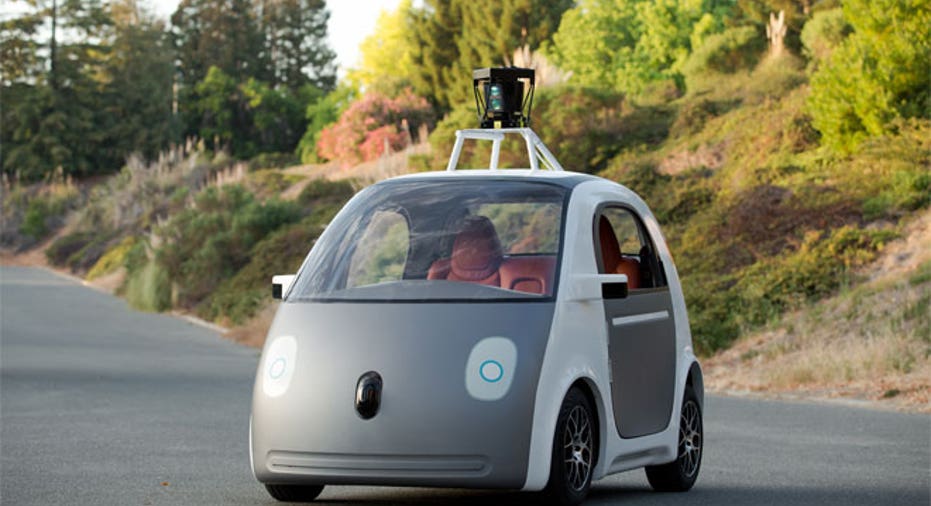When Worlds Collide

Years before the dot-com bubble burst and Blackberrys became a thing, the tech industry used to talk incessantly about the coming convergence of computing, communications, and consumer electronics. It was a really big deal.
In some ways that convergence has far surpassed our expectations. It is, after all, remarkable what you can do with a tiny handheld device these days.
In other ways, we’re still waiting. You need look no further than your living room TV for a frustrating reminder of how far we have to go. The lack of integration between traditional broadcasting and Web content is sort of ridiculous in this day and age.
What’s ironic is this long-awaited convergence hasn’t been thwarted by technological challenges, as you might expect, but by an agonizingly slow-motion collision between two worlds, old and new.
The more innovative companies attempt to disrupt markets, the more the old guard seems to dig in its heels. A quick scan of the news of the day highlights the remarkable persistence of the status quo. That said, it’s not entirely clear who’s in the right in these collisions du jour:
Automakers aren’t all that excited about partnering with Google on its self-driving car, but Uber CEO Travis Kalanick seems remarkably cool about replacing thousands of drivers with autonomous vehicles. “Look, this is the way the world is going,” he said at the Code Conference, “the world isn’t always great.” That’s cold.
On the other hand, if Google’s cars know as much about us as Google does, that may just be too creepy. Thanks to Google Now, Maps, Gmail, and Calendar, you won’t even have to summon a car. It’ll just show up at exactly the right time to take you to your next appointment. Now that’s chilling.
At a recent conference in Munich, Deutsche Telekom CEO Timotheus Hottges was heard whining that U.S. tech giants Google and Facebook get a free ride on top of his company’s regulated infrastructure. It’s not clear whether he wants regulation for Internet companies or deregulation for his, just a level playing field.
Sounds to me like a euro version of our own net neutrality debate is brewing in Germany. Wonder if their regulators are as clueless and inept as the FCC?
Meanwhile, France is trying to pressure U.S. Internet companies to remove terrorism-related content from their websites in the wake of the Charlie Hebdo attack. Granted, terrorists use social media as a terror and recruiting vehicle, but free speech advocates say that’s the price of freedom. Also counterterrorism experts gather intelligence from the Internet chatter. A gnarly debate, to be sure.
Back in the heartland, soft artificial intelligence has found its way into everything from smartphones to customer call centers. But with big data analytics making everything from power grids and highways to home appliances smarter, physicist Stephen Hawking cautions, “The development of full artificial intelligence could spell the end of the human race” and Tesla CEO Elon Musk says AI is “our biggest existential threat.”
When I asked Apple’s Siri if she were a threat to mankind, she would only say, “I can’t answer that.” Is that can’t or won’t, I wonder?
Computers may indeed be getting smarter at our expense. Behavioral neuroscientist Daniel J. Levitin wrote a brilliant piece in The Guardian explaining how everything from email and texting to Facebook and Twitter have us all behaving like Internet addicted lab rats in a behavioral conditioning experiment. No debate there. Not from me, anyway.
Back to the battle for the living room, Amazon won’t need delivery drones to bring original movies right to your TV. On the heals of Netflix announcing a sequel to Ang Lee’s “Crouching Tiger, Hidden Dragon,” the ecommerce giant said it plans to produce or acquire up to a dozen movies a year and deliver them via Amazon Prime and Fire TV.
As for me, I’m holding out for a post Comcast – Time Warner Cable merger deal with Apple for a fully integrated Web TV solution. That’s the ticket.
Last but not least, Brooklyn-based craft site Etsy is going public. Alibaba it’s not, but the purported $300 million IPO is no drop in the bucket, either. Considering its first product was a computer made of wood, Etsy’s got some pretty cool stuff. I just bought a white board for my home office in an antique-finished wood picture frame. It’s both functional and beautiful.
Maybe there is hope for old and new world convergence after all.



















